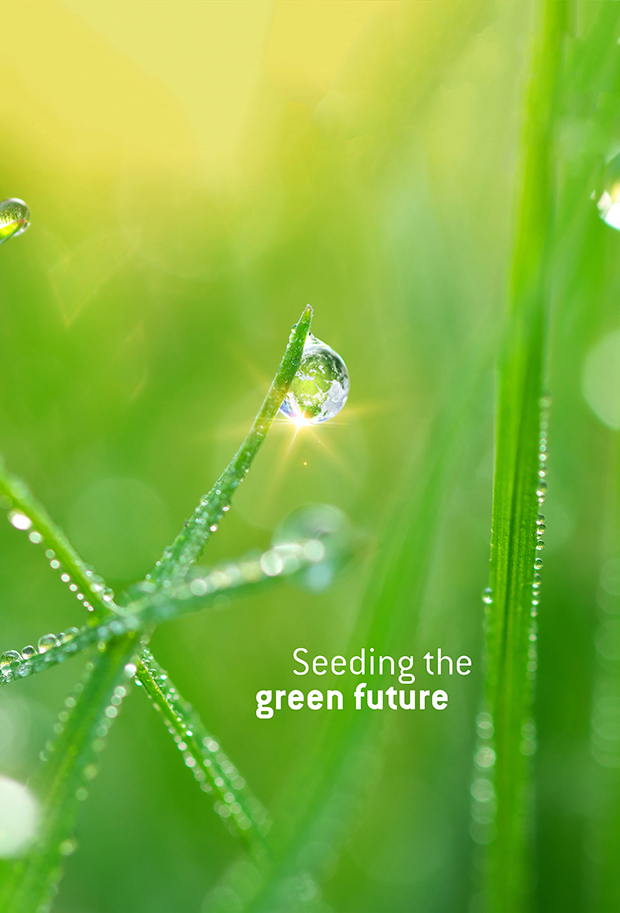Grass, clover and alfalfa make forage and protein production more climate-friendly
We all know that grass meadows, pastures and lawns are good for feed, wildlife and leisure. But green fields, that capture solar energy via photosynthesis are also contributing to a more climate friendly future. Global leader in forage and turf seed, DLF Seeds, have identified a range of examples, where grass makes our agricultural production greener.

Climate changes due to greenhouse gas emissions from agriculture can be reduced by promoting agricultural productivity, carbon sequestration in the soil, nitrogen fixation and local protein production.
Truels Damsgaard, CEO in DLF, sees an extensive potential in promoting perennial forage grasses and forage legumes, where DLF has the lead in plant breeding and product development.
"We are committed to meeting the global challenges of climate change. Through the use of advanced breeding techniques and working in close collaboration with all of our stakeholders, we are developing the greener solutions of tomorrow.
The agribusiness’s task to reduce the environmental and climatic impact of milk and meat production begins by making the right forage decisions. It requires that farmers and the dairy and meat industry take benefit of locally produced forage which can increase productivity of livestock and resource-efficient land use", says Truels Damsgaard.
Forage livestock systems based on high quality grass and mixtures of grass, clover and/or alfalfa incorporate three important features to maintain a sustainable agricultural production:
- Increase productivity of land and livestock
- Limit the use of inputs like pesticides and fertilizers
- Minimize tillage and soil erosion
Carbon sequestration and green proteins
Perennial forage mixtures reduce soil disturbance compared to annual crops like cereals or maize. The result is substantially higher carbon sequestration in the soil, improved soil fertility and less need for pesticides. Grass and legumes provide home-grown protein limiting both the need for imported protein and the emissions from transport.
"Legumes are self-sufficient with nitrogen thus restraining the emissions from production of fertilizer. Locally produced protein offsets some of the very heavy carbon emission processes. The potential for locally produced protein could reach another level when full-scale bio-refining plants have proven to be profitable, and grass proteins are fully digestible for monogastric livestock like pigs and poultry", says Klaus K. Nielsen, CSO in DLF.
Both capital and research capacity – public and private – are currently invested to develop and integrate technologies.
"It is essential that companies and research institutions form partnerships to develop and provide both economically and environmentally sustainable green solutions", says Klaus K. Nielsen.
In May 2020 DLF has, together with the agricultural companies DLG and Danish Agro, established the company BioRefine Denmark A/S, a full-scale biorefinery designed to produce concentrated protein from approx. 2,000 hectares of clover, alfalfa and grass for organic feed and in the long term also white protein for human food.
